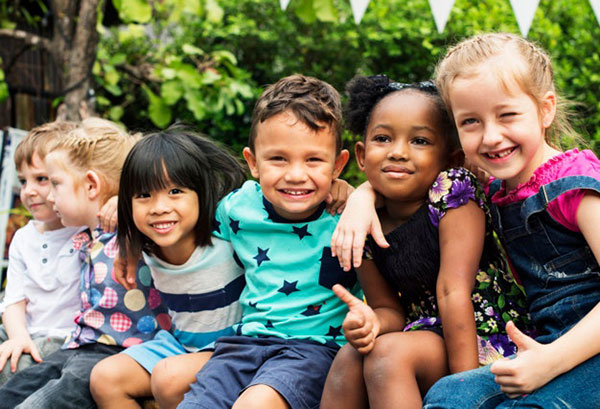Overcoming Hurdles in Multicultural Parenting: A Collection
To overcome hurdles in multicultural parenting, embrace patience and effective communication strategies when facing language barriers. Bilingual education and translation services can facilitate understanding within your diverse family. Celebrate cultural traditions by exploring dishes, clothing, songs, and folktales, enriching family bonds and heritage. Help your children navigate identity formation by encouraging self-exploration and resilience. Adapt your parenting style by finding a balance between cultural practices, practicing authoritative parenting, and focusing on effective communication. Seek community support through workshops and events to gain valuable insights and broaden perspectives. Embrace these steps to foster harmony in your multicultural family.
Key Takeaways
- Utilize bilingual education and translation services for effective communication.
- Embrace cultural celebrations to strengthen family bonds and traditions.
- Support children’s identity formation through self-exploration and communication.
- Adapt parenting styles to balance cultural practices and nurture growth.
- Seek community support, workshops, and events for valuable insights and mutual understanding.
Language Barriers

Managing language barriers in multicultural parenting can present unique challenges that require patience, understanding, and effective communication strategies. Bilingual education and translation services play an essential role in facilitating communication between parents and children who speak different languages. By utilizing these resources, parents can guarantee that their children have access to educational materials and understand important information in their native language.
Language immersion programs offer another effective strategy for overcoming language barriers in multicultural parenting. By immersing themselves in a new language and culture, both parents and children can develop a deeper understanding and appreciation for different ways of communication. This not only helps bridge the gap between languages but also fosters cultural exchange and mutual respect.
Incorporating translation services into daily routines and actively participating in language immersion programs can greatly enhance the communication and bonding experience within multicultural families. Embracing these strategies with an open mind and willingness to learn can lead to more harmonious relationships and a stronger sense of unity among family members.
Cultural Celebrations

Embracing and incorporating cultural celebrations into your multicultural parenting approach can greatly enrich your family’s experiences and strengthen bonds across different traditions and backgrounds.
Food traditions play a significant role in cultural celebrations. Exploring and preparing traditional dishes together can be a delightful way to connect with your heritage and pass down recipes through generations.
Festive attire is another exciting aspect of cultural celebrations. Dressing up in traditional clothing can evoke a sense of pride and belonging, allowing children to understand the significance behind different garments.
Music and dance are universal languages that can bridge cultural differences. Introducing your children to traditional songs and dances can create a deeper appreciation for diverse cultures while fostering a sense of unity.
Storytelling traditions are a powerful way to preserve cultural heritage. Sharing folktales, myths, and legends from your background can spark curiosity and imagination in children, strengthening their connection to their roots.
Identity Formation

Understanding the role of cultural identity in your children’s development is essential for successfully guiding the complexities of multicultural parenting. Identity formation is a vital aspect of your children’s growth, influenced by various factors such as peer interactions, social media exposure, family dynamics, and societal expectations.
In today’s interconnected world, peer influences and social media play significant roles in shaping how your children perceive themselves culturally. It’s important to monitor these influences and engage in open discussions to help them navigate these external pressures.
Moreover, family dynamics within a multicultural household can impact how your children perceive their identity. Balancing different cultural traditions and practices within the family unit requires sensitivity and communication.
Societal expectations can also exert pressure on your children to conform to certain cultural norms, potentially causing conflicts with their own sense of identity. Encouraging self-exploration and fostering a strong sense of self-worth can help your children navigate these challenges and develop a resilient cultural identity.
Parenting Styles
Managing multicultural parenting hurdles involves adapting your parenting styles to effectively support your children’s identity formation and growth. When it comes to discipline methods, it’s important to find a balance between your cultural practices and those of your partner. Research suggests that authoritative parenting, which combines warmth and clear boundaries, is often beneficial in multicultural families. This approach fosters independence while maintaining a supportive environment.
Communication styles are another significant aspect of parenting. In diverse family settings, it’s crucial to understand how language, tone, and non-verbal cues can differ between cultures. Active listening and open dialogue are key components of effective communication. Research shows that children raised in environments where their voices are heard tend to have higher self-esteem and better emotional regulation.
Community Support

Managing multicultural parenting hurdles can be greatly eased with the presence of a strong network of community support. Engaging in parenting workshops and being part of support groups can provide you with valuable insights and strategies to navigate the challenges of raising children in a multicultural environment. These platforms offer a safe space to share your experiences, learn from others, and gain a sense of belonging within a community that understands and respects diverse parenting approaches.
Cultural exchange plays an essential role in broadening your perspective and fostering mutual understanding among different cultural backgrounds. Participating in community events that celebrate diversity can help you and your family appreciate the richness of various traditions and customs, promoting tolerance and acceptance.
Frequently Asked Questions
How Can I Navigate Cultural Differences in Discipline Techniques?
Exploring cross-cultural discipline involves understanding diverse parenting techniques. Embrace open communication with your partner to blend traditions. Research and adapt methods that align with both backgrounds. Consistency, respect, and mutual understanding are key.
What Strategies Can I Use to Help My Child Embrace Their Dual Heritage?
To help your child embrace their dual heritage, consider celebrating traditions to foster understanding. Encourage identity exploration and promote acceptance by creating a supportive environment that values and respects both cultural backgrounds.
Are There Resources Available for Multicultural Families in Rural Areas?
In rural areas, community support and cultural events can offer valuable connections for multicultural families. Additionally, online resources and virtual communities provide access to information and support, bridging the gap for families seeking guidance and connection.
How Can I Address Prejudices or Stereotypes My Child May Face?
To address prejudices or stereotypes your child may face, focus on promoting confidence and empowering them. Educate peers by sharing cultural insights, building resilience within your child. Encourage open discussions, celebrate diversity, and provide a safe space for them to express their feelings.
What Role Can Extended Family Members Play in Multicultural Parenting?
In multicultural parenting, extended family members provide valuable support by sharing cultural traditions, promoting language learning, and participating in cultural celebrations. Their involvement enriches your child’s understanding of diverse backgrounds and fosters a sense of belonging.
Conclusion
To sum up, successfully managing the challenges of multicultural parenting requires patience, understanding, and a willingness to learn and adapt.
By addressing language barriers, embracing cultural celebrations, supporting identity formation, adjusting parenting styles, and seeking out community support, parents can better connect with their children and create a harmonious multicultural family dynamic.
Remember, each family’s journey is unique, but with determination and open-mindedness, you can overcome any hurdles that come your way.

Hey there! 👋 I’m a proud mom and passionate writer, sharing my parenting journey. 📝 Join me as I navigate the ups and downs of motherhood, offering tips, advice, and a sprinkle of humor along the way. 🌟







